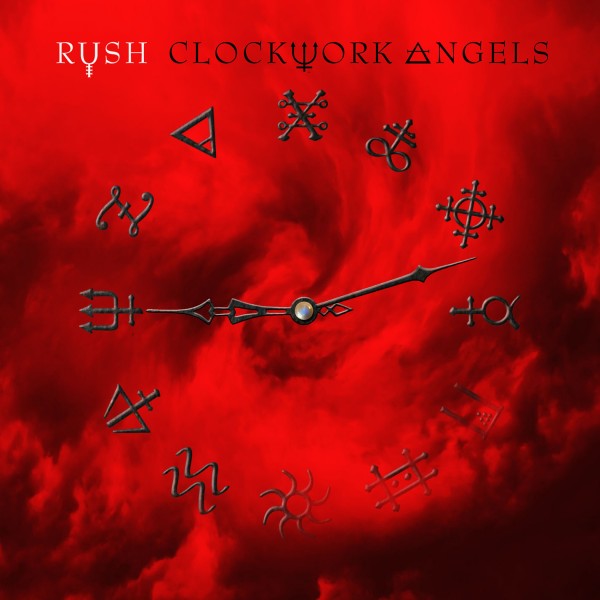Rush have always been that band that their millions of fans remain maniacally loyal to while non–believers (Rush is a form of religion) seem oblivious – disdainful even, to a phenomenon that they just do not understand. Consistent with being highly intelligent men who simply refuse to do anything other than on their own terms, Rush have explored all kinds of sounds and styles in their career now spanning almost four decades but regardless of whether they dabbled in great synthesizers washes, reggae beats, new wave or math rock to name just a few detours, they’ve always somehow managed to sound like only they can.
Few would argue that recent appreciation of their significance – beyond that of their existing fans at least – was certainly aided by the refreshingly open and self–effacing documentary Beyond The Lighted Stage and with that there’s a suggestion that the penny is finally dropping with the wider music audience, many of whom are perhaps grudgingly acknowledging that Rush are indeed the geniuses that the devotees have always known them to be. So, with the release of their first new record since this dawning of public awareness, has the band responded favorably to the long overdue vote of confidence? Of course they have…
Landing squarely in the band’s favored compositional wheelhouse: the cerebral concept record, Clockwork Angels – Rush’s twentieth full length studio album – fuses typically complex arrangements with philosophical – vulnerable almost, Neil Peart lyrical themes. But with a more aggressive sounding hard rock production muscle that was curiously absent on both 2007’s Snakes & Arrows and its predecessor Vapor Trails, Clockwork Angels scores heavily on power while sacrificing nothing in the way of melody or hooks. It’s lengthy too – clocking in at an imposing sixty six minutes with the majority of tracks extending beyond the five minute mark – plenty of time for the narrative to reveal itself therefore.
So while the album’s concept is strong and – for those well versed with the band’s epically conceptual 2112 released 36 years previously, a familiar one: a young man’s struggle to pursue his dreams in a complex and dystopian future world overseen by – on this occasion – a watchmaker. Where 2112 was very youthfully direct in its communication, there’s a noticeable softening in the manner in which the lyrical messages are communicated now, almost as if time has afforded Peart newfound clarity and inner contentedness. “All I know is that sometimes you have to be wary, of a miracle too good to be true/ All I know is that sometimes the truth is contrary” Geddy Lee warns in the gorgeously arranged ‘The Wreckers’ – all lush strings and a perfect wall of Alex Lifeson’s always song–serving guitar gloss.
Elsewhere the title track is urgent and delicate in equal measure – a multi–part epic in itself, whereas the seven minute long ‘Headlong Flight’ is perhaps the most obvious nod to the Rush of three decades previously as Lee repeatedly pleads, “I wish that I could live it all again” while his dexterous bass lines pump the song relentlessly forward. It all holds together perfectly conceptually as you’d expect, but given that both the album opening duo of ‘Caravan’ and ‘BU2B’ were made available to radio stations in 2010, it’s important to say that every track stands up individually also – often the failing of albums based around a theme.
As the concept winds down ,‘The Garden’ closes the record with startling poignancy while referencing a metaphorical garden home to the acts and attitudes of any person’s life – a place that we all must eventually tend and Peart digs unusually deeply into his psyche, exposing the suggestion that “the measure of a life is a measure of love and respect/ So hard to earn, so easily burned.”
Simply put Clockwork Angels is an extremely accomplished piece of music composed and performed absolutely flawlessly by three undeniably mature and worldly human beings. Comparisons – other than in terms of conceptuality – with previous incarnations of the band’s sound are neither relevant or something that they’d want us to look for. This is Rush of 2012, with the benefit of the kind perspective and wisdom that only their kind of awesome longevity can afford and whether you’re a die –hard or a recent convert, you should embrace this wholeheartedly and hold on awful tight.


